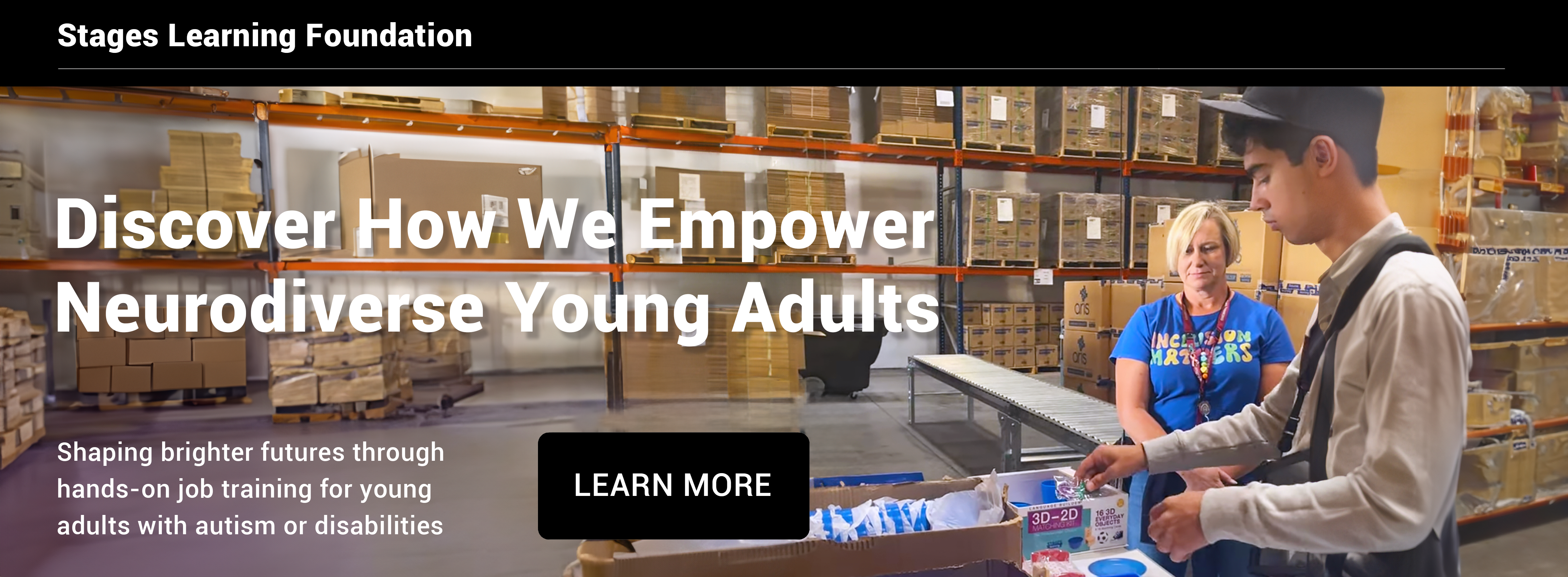What Autistic* Teenagers Need to Thrive
When our autistic children grow up and enter the preteen and teen years, their needs change. They will require a new approach and different interventions to help them thrive. What may have worked for them when they were younger, may suddenly not work anymore and even annoy them. They may try to communicate their changing needs to you through spoken language and/or through changes in their reactions and behavior.
My teenage grandson has become quite vocal about his likes and dislikes, and over the past few years, I’ve had to adapt strategies and learn new ways of interacting with him that respect his developing sense of identity and his maturing from childhood into young adulthood.
Here are some of the things that I learned, changed, and implemented that are helping him thrive:
Tension Reducing Exercise
It is well known that autistic children, after keeping it together for some time, often end up acting out to release tension. This can present even more in autistic teenagers, who have the additional challenge of dealing with hormonal changes and moodiness. One of the best ways to reduce this built-up tension is through regular exercise.
My grandson is not into sports, but he loves to walk while listening to his favorite music. I make sure that every morning he has at least 20-30 minutes to walk up and down the sidewalk in front of our house while waiting for the bus, which has a calming effect on him.
After school, he often asks to take a walk to the park in our neighborhood, which he is now able to do on his own. He has clear instructions on what route he is allowed to take, and even though we live in a safe neighborhood, we both have the Life360 app on our phones, so I can locate and communicate with him at all times. This daily exercise makes him more mindful, helps him to think clearer, and sleep better at night.
Providing your teenager with an opportunity for some tension-reducing exercise—supervised or independently depending on their ability—can make a big difference and improve their attitude and behavior tremendously.
Read more here:
Finding Fun and Fitness: Exercise for Children and Young Adults with Autism

Respectful and Open Communication
Some children with autism can be emotionally and developmentally delayed, but when they reach puberty, their bodies go through the same hormonal changes as same-age neurotypical teenagers. This can result in moodiness, awkward feelings, and questions about the changes that take place physically and emotionally. It is important to treat their feelings and questions with respect and to answer them simply, directly, and factually.
Rather than giving him “The Talk”, I found it more effective to answer my grandson’s questions one at a time as he asked them. I found a tremendous resource at https://kidshealth.org, which has an entire section dedicated to autism with separate pages for parents, kids, teens, and educators. There are answers to just about any question your teen may have on health and hygiene, including sex and puberty.
If your teen is embarrassed to talk about the topic, their information is presented in such a way that they can read it by themselves while listening to a recording of the text. My grandson preferred learning that way with me being available nearby in case he had questions and needed further answers or explanations.
Respecting their feelings and answering their questions in a way they are comfortable with go a long way in helping them develop into kind and caring young adults with healthy attitudes.
Read more here:
Talking About Puberty with Children with Autism
Esteem Building
I taught my grandson from a very young age that he was born with a "diffability" called autism after he asked me, “Autism Is…?”. When our autistic children grow up, they become more aware of their differences, as do other teenagers they interact with at school or in other social settings. This can sometimes result in teasing and bullying, which can affect their self-esteem.
My grandson, now 16 years old, still likes to watch and talk about TV shows geared toward younger audiences, and it is hard for him to understand why his classmates would tease him about it and not share his interests. This resulted in him feeling “dumb” compared to others his age, and he asked me if he was strange for liking the children’s shows he still watches regularly.
When questions like this come up, our autistic teenagers need our reassurance the most. Besides teaching him how to handle teasing and bullying, I told my grandson it’s perfectly okay for him to have unique likes and interests, just like anyone else. Encouraging my grandson, and joining him when he watches his shows sometimes, has helped him feel better about himself.
Support and enjoy your children at each stage of their development, and boost their self-confidence every chance you get by assuring them that you are proud of them just the way they are. Their interests will change, and they will be interested in more age-appropriate subject matters soon enough.

Visual Supports
|
Did you…?
Before leaving for school, do you have…?
|
Like most autistic children, my grandson is a visual learner, and without visual support, he often forgets the most basic verbal instruction and direction. I always used picture charts and lists so he could visualize tasks such as washing hands, showering, personal hygiene, or packing his backpack before leaving for school in the morning. That is until he recently blurted out he didn’t want them in the bathroom or on his corkboard anymore, because they look too childish. He had a point!
Respecting his feelings, but realizing that without a visual he would stand under the shower for half an hour without using soap and shampoo, or leave school without brushing his teeth or putting his lunch in his backpack, I created new, more discreet visuals. When I showed him his new, small, and unobtrusive “checklists” he was so grateful!
The best reward I still get from making this small change is when I see him stop at the front door every morning and hear him mumble the items on his list—sometimes resulting in “Yup! Got it!” or “Oh shoot! I forgot my lunch!” His new checklists work even better than the illustrated visuals we used before.—And best of all, he feels respected.
Be ready to make changes to interventions or strategies you have used as your child matures and reaches puberty. What worked yesterday may not work the same today. A simple update may do the trick, or in other cases, an altogether new strategy may be needed.
Structure, Limits, and Boundaries
All teens crave structure and boundaries, even though they may protest. Autistic teenagers are no exception. Having the rules and routines clearly and visually defined—both at home and school—reduces anxiety and helps them to feel safe.
Each new school year my grandson and I draw up his visual daily schedule and new school rules together, and if anything changes, I make sure to update them immediately. Initially, he will ask to review his schedule and the rules every morning during our breakfast time together. After a while, he will indicate that he’s got them down, and we will stop reviewing. Even though he does not need to refer to the visuals as often, they’re still there as a reminder.
He also has clear rules and routines at home. For example, computer and phone time are limited and not allowed after dinner and before bedtime. When these structures, limits, and boundaries are not consistently kept, problem behavior almost always ensues. Of course, there are exceptions and changes in a routine sometimes, but I always make clear it’s just for that time only.
Healthy structure and boundaries will help stabilize your autistic teenager and can help avoid moodiness and uncontrolled behavior. Most importantly, routine and clear rules create good habits and prepare teenagers for the future, whether in college or for employment.

Teachers, Models, and Mentors
All children need role models to look up to, and nothing is more powerful than positive relationships with adults who inspire and motivate them. When a teacher, family member, or family friend believes in them, these positive relationships can make a big difference. In my grandson’s case, a call from his aunt can positively turn his day around in an instant.
Teenagers can sense an adult’s confidence in them. It helps them feel reassured and hopeful about themselves and their future because someone outside their immediate family circle also believes in them.
As with all children, when our autistic children grow up and enter the preteen and teen years, their needs change. They may communicate their changing needs verbally or by acting out and moodiness. Of course, each teenager is unique, and there’s no one-shoe-fits-all solution for teenage behavior, but adapting previously used strategies and interventions, such as the ones outlined in this article, may help turn the tide and help your autistic teenager thrive too.
What is helping your autistic teenager thrive? We’d love to hear from you in the comments below.
We hope you enjoyed the information in this article. STAGES® Learning also offers free downloadable resources to support teaching and learning with individuals with autism. Start with our free Picture Noun Cards and see our collection of other downloadable resources here!
*A Note from Stages Learning: Whenever possible Stages Learning uses the preferences stated by an individual as to whether to use identity-first (“autistic person”) or person-first (“person with autism”) language. In a poll of 21,000 people, 69% preferred identity-first language, and 31% preferred person-first language. A thought piece by Northeastern University indicated that in the majority of cases, autistic people themselves prefer to be called autistic people, whereas caregivers and professionals prefer the wording “people with autism.” We agree with the Northeastern article that the group being talked about should be able to dictate what they are called. As we move forward we plan to alternate our usage in our written materials and in our speech. We recognize the importance of this issue to so many people and we plan to revisit this issue in the coming years with the expectation that preferences will likely continue to shift and we will do our best to reflect these changes. We welcome your thoughts on this issue. Please feel free to contact us.

Ymkje Wideman-van der Laan
Ymkje Wideman-van der Laan is an author, public speaker, and Certified Autism Resource Specialist from the Netherlands. After working abroad as a teacher and humanitarian for 25 years, she moved to the US in 2006 and assumed the care of her then 6-month-old grandson, Logan. There were signs of autism at an early age, and the diagnosis became official in 2009. She has been his advocate and passionate about promoting autism awareness and acceptance ever since. Logan is the inspiration behind the Autism Is...? (tinyurl.com/5aj73ydd) series of children’s books she initially wrote for him and later published. Ymkje currently lives in California with her now 15-year-old grandson, and besides writing, presents autism training workshops for early childhood educators, parents, and caregivers. You can read more about her story in her newly released book, Autism on a Shoestring Budget, [Early] Intervention Made Easier (https://tinyurl.com/ysxhxbmf). For more information, you can visit www.autism-is.com, www.facebook.com/AutismIs, and/or contact her at autismisbooks@gmail.com.





